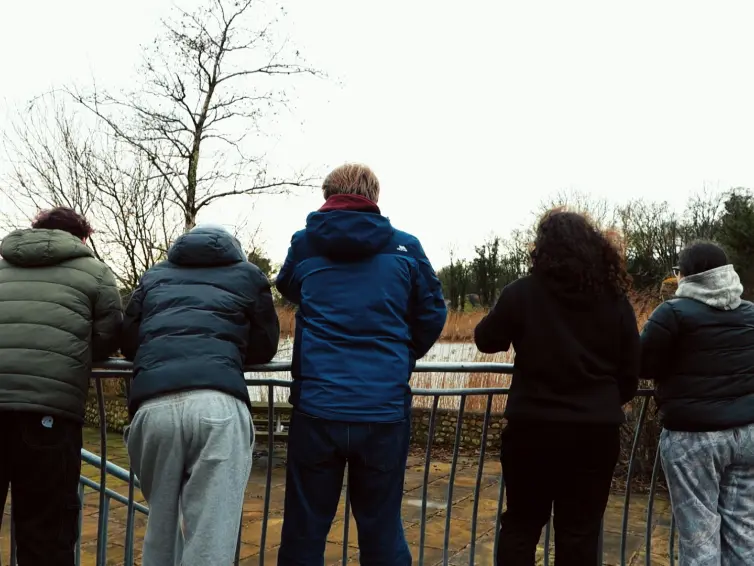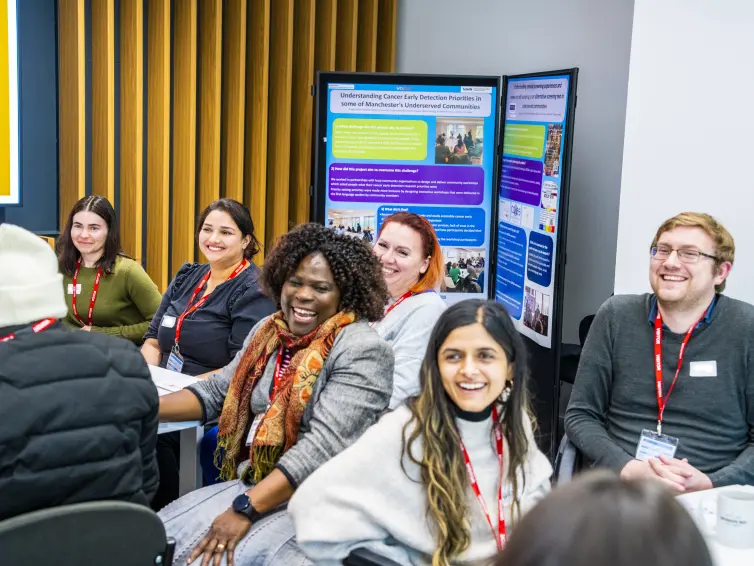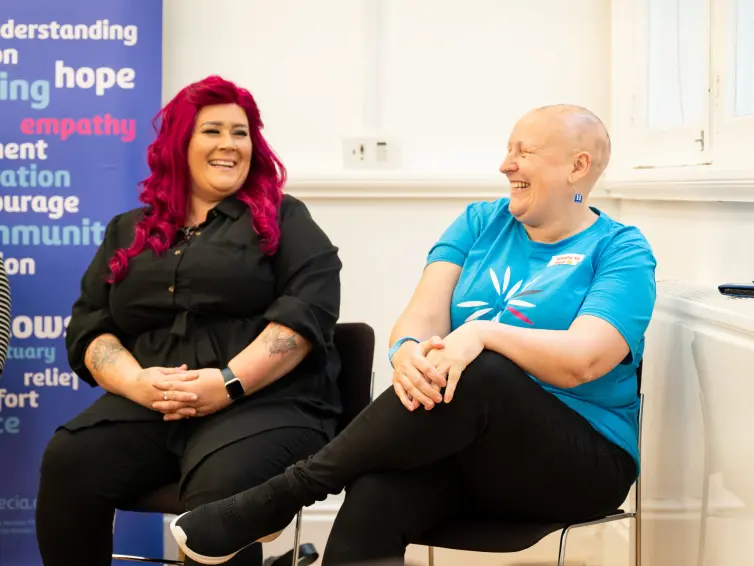Partnerships in research
Europia and Vocal collaborated to ensure that women from the Roma community had a say in shaping the future of cervical cancer screening.
Issy from the Vocal team and Elena from Europia share how they worked together.
How did the partnership come about?
Issy Cancer Researchers are exploring if new at-home screening kits for cervical cancer could help to make screening more accessible and identify and treat cancer early. The current method of screening, the smear test, has reduced cancer deaths by 70%, but in Greater Manchester only 3 in 5 people attend their screening appointments. We know that people experience different barriers in accessing health services. We wanted to work inclusively with communities and ensure that they had opportunities to contribute to the development of this research.
Elena We feel it’s important for the Roma community to be involved in projects that can improve their access to healthcare and screening.
The Roma community in Manchester is a vibrant and culturally rich group that has contributed significantly to the city's multicultural fabric. Roma people have a distinct cultural heritage characterised by their music, dance, language, and strong familial bonds. However, the community faces substantial systematic barriers when accessing healthcare, making them one of the communities with the lowest access to primary care services.
There a number of factors that contribute to low engagement including low literacy levels, language and cultural differences, distrust towards statutory services, and strong stigma and taboo associated with serious diseases such as cancer. Due to these barriers, Roma women have been identified as having a very low uptake of cervical cancer screening. Amongst women, cervical cancer screening has been viewed as a private and taboo topic that is rarely discussed, due to its connection to sexual and reproductive health.
How did you work together?
Issy We commissioned Europia to facilitate two workshops with Roma women and worked together to plan these.
Elena We felt it was important to have two sessions. In the first session, the women met the research team and had a gentle and sensitive introduction to the topic of cervical cancer screening. This allowed the community to get familiar with the researchers and feel more informed and confident about the second workshop.
I felt happy when the researcher took the time to answer each of our questions about cervical cancer, it was extremely useful and I learned a lot.
Workshop participant
Issy In the second session we focused more on what the group thought about the kits and their views and opinions on how they could be improved along with the instructions and the accompanying information.
Elena All of the women were very satisfied with the design and use of the new kit. They considered the urine testing kit a smart and intelligent invention that would encourage women to look after their health, especially as it is not invasive and it is easy to use at home by the general population in the age target group.
I now know the importance of cervical cancer screening and why it is beneficial to women’s health. But most importantly I feel empowered to know that my voice can make a difference in how the screening process will look for the women in Manchester and even further. I hope the project succeeds and I can help with testing as soon as the kit is out.”
Workshop participant
What are your reflections on working together?
Issy The cultural expertise of Europia and their community champions meant that the sessions were successful. The interpreters conveyed why the help of the group was being sought and the influence that group members could have on the health of their friends, families, and community. Together, we worked out how to balance the need to communicate clinical information while respecting the comfort levels of everyone in the group.
What's next?
Elena
Everyone who took part is interested in further updates on the kit and the progress of the research.
Issy
The researchers are continuing to talk about cervical screening with a diverse range of communities across Greater Manchester. Based on the learnings from the Europia sessions, the research team will soon be applying for ethical approval for the research. This process can take up to six months. We'll be getting back to Europia as soon as we can with an update on the project and next steps for future involvement.


